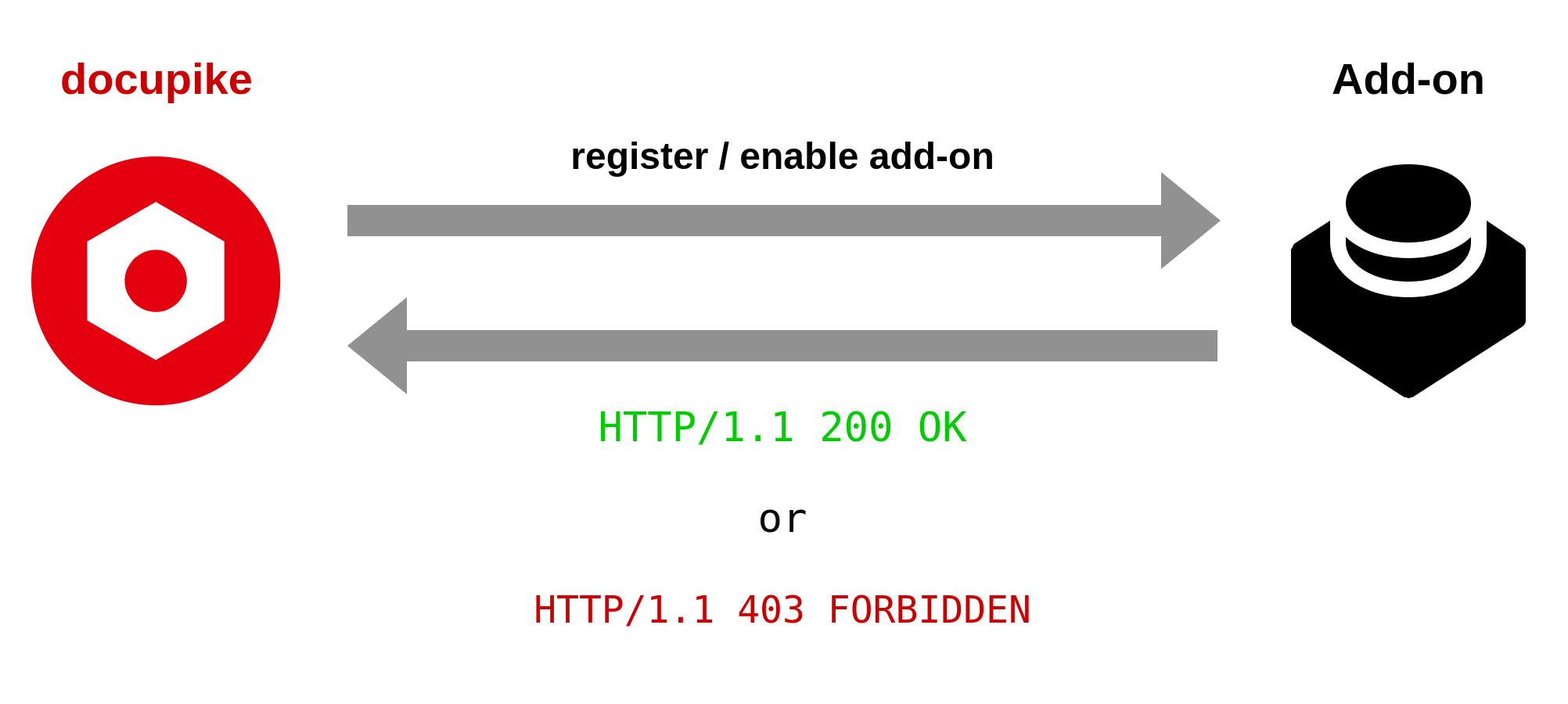Licensing
Licensing is an important topic to decide if an add-on is accessible or whether its offered functionalities should be hidden because the license does not own specific characteristics.
In general each add-on is a micro-service implementing a specific interface and exposing different capabilities to integrate into docupike's ecosystem. That said one can say that add-ons are encapsulated, responsible and self-sufficient software. The API-based communication is the only way docupike and add-ons can communicate and exchange data.
Because of this perspective docupike shifts as much responsibility to add-ons as possible to transfer control about add-on related aspects. Licensing is also considered as add-on related why the decision maker should be the add-on itself.
Technical workflow#
docupike licenses allow to include add-on specific information and should therefore serve as main resource in the decision process. This is the preferred way. To expose the license to registered add-ons docupike will embedded these information into each request sent to the add-on. The add-on can access the license beside of other information from the HTTP-Header data. The content is JSON encoded and should be decoded before accessing it:
1 2 3 4 5 6 7 8 9 10 11 12 13 14 15 16 17 18 19 20 21 22 23 24 25 26 27 28 | |
License checks#
License checks should be an essential part of each request processed by the add-on which is described above. Because license information can change over time the license checking should be done on each request the add-on receives. These guarantees that the add-on can react on changes in the license.
Another case is the add-on registration procedure which is the first interaction between add-on and docupike. docupike's add-on infrastructure allows add-ons to decide whether a registration is possible or not. The main use-case here is again license related but could be something else also. In general the registration process should be prevented if license requirements are not met at all from add-on perspective. If the add-on decides to permit the registration process because of unmet dependencies it should return HTTP-Code 403 Forbidden. Optionally the add-on can add a short problem description to its response:
1 2 3 4 | |
The same flow also applies to enable hook:
